Physical Activity Researcher
Hello and Welcome to Physical Activity Researcher Podcast! Physical Activity Researcher Podcast is the source of the latest research findings on all things related to physical activity, exercise, and health. World-renowned scientists and experts as guests in an informal and relaxed interview style format. New episodes on Tuesdays, Fridays, and Sundays. The podcast is for anyone who likes to learn scientific and evidence-based knowledge of physical activity, exercise, and health. Our listeners range from researchers to health and fitness professionals, and from inactive office workers to marathon runners. Podcast has several series and hosts each concentrating on different aspects of physical activity: Physical Activity Researcher Series The latest research findings in exercise physiology, biomechanics, physical education, coaching sciences, sport psychology, epidemiology, and public health. These episodes are hosted by researcher and entrepreneur Dr Olli Tikkanen. Meaningful Sport Series Meaningful Sport is dedicated to the exploration of meaning and meaningful experiences in sport and physical activity. Many studies have revealed instrumental benefits of physical activity, but is there something more to it, and how does it contribute to meaningful lives? This series is led by Associate Professor Noora Ronkainen. The series provides inspiration for exploring the meaning and value in sport and physical activity for everyone. Practitioner’s Viewpoint Series Practitioner’s Viewpoint Series has health and fitness professionals as guests. How they see sedentary behaviour and physical activity in their work? What are the best practices to promote physical activity? This series is for you if you are a Personal Trainer, Physiotherapist, Medical Doctor, Health Coach, or anyone working as a health and fitness professional. This series is lead by physiotherapist MSc Liis Kukkonen. Publishing schedule: Tuesdays: Physical Activity Researcher Series Friday: Meaningful Sport Series Sundays: Practitioner’s Viewpoint Series. + Bonus episodes and republications of past highlight episodes We hope you find value in the podcast! -Podcasting team-
Hello and Welcome to Physical Activity Researcher Podcast! Physical Activity Researcher Podcast is the source of the latest research findings on all things related to physical activity, exercise, and health. World-renowned scientists and experts as guests in an informal and relaxed interview style format. New episodes on Tuesdays, Fridays, and Sundays. The podcast is for anyone who likes to learn scientific and evidence-based knowledge of physical activity, exercise, and health. Our listeners range from researchers to health and fitness professionals, and from inactive office workers to marathon runners. Podcast has several series and hosts each concentrating on different aspects of physical activity: Physical Activity Researcher Series The latest research findings in exercise physiology, biomechanics, physical education, coaching sciences, sport psychology, epidemiology, and public health. These episodes are hosted by researcher and entrepreneur Dr Olli Tikkanen. Meaningful Sport Series Meaningful Sport is dedicated to the exploration of meaning and meaningful experiences in sport and physical activity. Many studies have revealed instrumental benefits of physical activity, but is there something more to it, and how does it contribute to meaningful lives? This series is led by Associate Professor Noora Ronkainen. The series provides inspiration for exploring the meaning and value in sport and physical activity for everyone. Practitioner’s Viewpoint Series Practitioner’s Viewpoint Series has health and fitness professionals as guests. How they see sedentary behaviour and physical activity in their work? What are the best practices to promote physical activity? This series is for you if you are a Personal Trainer, Physiotherapist, Medical Doctor, Health Coach, or anyone working as a health and fitness professional. This series is lead by physiotherapist MSc Liis Kukkonen. Publishing schedule: Tuesdays: Physical Activity Researcher Series Friday: Meaningful Sport Series Sundays: Practitioner’s Viewpoint Series. + Bonus episodes and republications of past highlight episodes We hope you find value in the podcast! -Podcasting team-
Episodes
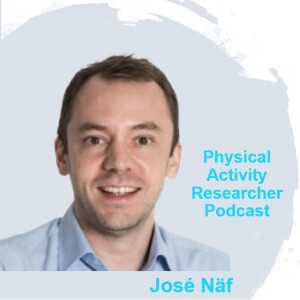
2 hours ago
2 hours ago
What if cooling vests could help save lives during mass pilgrimages in extreme heat? Learn how these innovations are being adapted for religious and cultural use.
"Lean more about Nahtlos Duratrode electrodes at https://www.nahtlos.com/"
In this episode, Dr. Olli Tikkanen and José Näf explore the life-saving potential of evaporative cooling vests in extreme environments, including the Hajj pilgrimage, where temperatures can exceed 50°C. José discusses the development of seam-free cooling garments that comply with religious dress codes, offering relief for thousands of elderly pilgrims walking long distances in dry, desert climates.
The conversation also covers the role of cooling vests in protecting older adults in Southern Europe during heat waves and how humidity levels affect the performance of evaporation-based cooling. José outlines exciting product development on the horizon, including new designs for head and neck cooling and integrating airflow with evaporation for stronger effects—all without electronics.
This episode highlights the future of wearable cooling technology and its role in protecting vulnerable populations under rising global temperatures.
_______
This podcast episode is sponsored by Fibion Inc. | Better Sleep, Sedentary Behaviour and Physical Activity Research with Less Hassle
---
Collect, store and manage SB and PA data easily and remotely -
Discover ground-breaking Fibion SENS
---
SB and PA measurements, analysis, and feedback made easy.
Learn more about Fibion Research
---
Learn more about Fibion Sleep and Fibion Circadian Rhythm Solutions.
---
Fibion Kids - Activity tracking designed for children.
---
Collect self-report physical activity data easily and cost-effectively with Mimove.
---
Explore our Wearables, Experience sampling method (ESM), Sleep, Heart rate variability (HRV), Sedentary Behavior and Physical Activity article collections for insights on related articles.
---
Refer to our article "Physical Activity and Sedentary Behavior Measurements" for an exploration of active and sedentary lifestyle assessment methods.
---
Learn about actigraphy in our guide: Exploring Actigraphy in Scientific Research: A Comprehensive Guide.
---
Gain foundational ESM insights with "Introduction to Experience Sampling Method (ESM)" for a comprehensive overview.
---
Explore accelerometer use in health research with our article "Measuring Physical Activity and Sedentary Behavior with Accelerometers ".
---
For an introduction to the fundamental aspects of HRV, consider revisiting our Ultimate Guide to Heart Rate Variability.
---
Follow the podcast on Twitter https://twitter.com/PA_Researcher
Follow host Dr Olli Tikkanen on Twitter https://twitter.com/ollitikkanen
Follow Fibion on Twitter https://twitter.com/fibion
https://www.youtube.com/@PA_Researcher
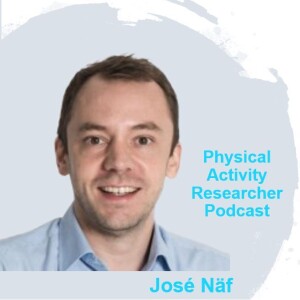
5 days ago
5 days ago
Why is evaporative cooling vital for people who cannot sweat, like those with paraplegia or artificial skin? Learn how smart cooling vests support health and safety in extreme conditions.
"Lean more about Nahtlos Duratrode electrodes at https://www.nahtlos.com/"
In this episode, Dr. Olli Tikkanen and José Näf discuss how evaporative cooling vests support individuals who suffer from heat sensitivity due to medical conditions such as paraplegia, multiple sclerosis, and severe burns. José explains how the loss of sweating ability in these groups can lead to dangerous heat stress and why conventional cooling methods, like ice packs, are not always safe or effective. They also explore the performance of evaporative vests in various humidity levels, with ongoing studies assessing use in places like Dubai and Thailand. From construction sites to clinical recovery, this episode highlights where and how cooling vests are used, including guidelines for wear time and practical use in daily routines. José also shares insights from collaborations with rehabilitation institutions and new testing efforts with artificial skin patients. This conversation offers a rich look into the physiological needs behind cooling innovation and its direct impact on people’s quality of life.
_______
This podcast episode is sponsored by Fibion Inc. | Better Sleep, Sedentary Behaviour and Physical Activity Research with Less Hassle
---
Collect, store and manage SB and PA data easily and remotely -
Discover ground-breaking Fibion SENS
---
SB and PA measurements, analysis, and feedback made easy.
Learn more about Fibion Research
---
Learn more about Fibion Sleep and Fibion Circadian Rhythm Solutions.
---
Fibion Kids - Activity tracking designed for children.
---
Collect self-report physical activity data easily and cost-effectively with Mimove.
---
Explore our Wearables, Experience sampling method (ESM), Sleep, Heart rate variability (HRV), Sedentary Behavior and Physical Activity article collections for insights on related articles.
---
Refer to our article "Physical Activity and Sedentary Behavior Measurements" for an exploration of active and sedentary lifestyle assessment methods.
---
Learn about actigraphy in our guide: Exploring Actigraphy in Scientific Research: A Comprehensive Guide.
---
Gain foundational ESM insights with "Introduction to Experience Sampling Method (ESM)" for a comprehensive overview.
---
Explore accelerometer use in health research with our article "Measuring Physical Activity and Sedentary Behavior with Accelerometers ".
---
For an introduction to the fundamental aspects of HRV, consider revisiting our Ultimate Guide to Heart Rate Variability.
---
Follow the podcast on Twitter https://twitter.com/PA_Researcher
Follow host Dr Olli Tikkanen on Twitter https://twitter.com/ollitikkanen
Follow Fibion on Twitter https://twitter.com/fibion
https://www.youtube.com/@PA_Researcher
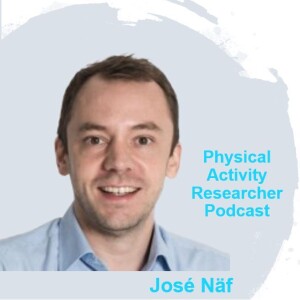
Sunday Feb 08, 2026
Sunday Feb 08, 2026
How does an evaporative cooling vest keep your skin up to 5°C cooler for hours—without making you wet? José Näf shares how smart materials can transform temperature regulation.
"Lean more about Nahtlos Duratrode electrodes at https://www.nahtlos.com/"
In this episode, Dr. Olli Tikkanen continues the conversation with José Näf, co-founder of Duracool, focusing on the design, functionality, and physiological impact of evaporative cooling vests. These vests use semi-permeable membranes to gradually release water vapor, providing long-lasting cooling without soaking the user.
José explains the technical design of their shoulder pads and vests, their application in both occupational settings and for individuals with medical conditions such as artificial menopause, and the importance of wearing them over—not under—clothing. Laboratory tests show their cooling performance lasts significantly longer than sponge-based vests, making them ideal for situations with moderate movement, like construction or low-intensity work in hot environments.
This episode is a must-listen for professionals and researchers interested in thermal comfort and performance under heat stress.
__________
This podcast episode is sponsored by Fibion Inc. | Better Sleep, Sedentary Behaviour and Physical Activity Research with Less Hassle
---
Collect, store and manage SB and PA data easily and remotely -
Discover ground-breaking Fibion SENS
---
SB and PA measurements, analysis, and feedback made easy.
Learn more about Fibion Research
---
Learn more about Fibion Sleep and Fibion Circadian Rhythm Solutions.
---
Fibion Kids - Activity tracking designed for children.
---
Collect self-report physical activity data easily and cost-effectively with Mimove.
---
Explore our Wearables, Experience sampling method (ESM), Sleep, Heart rate variability (HRV), Sedentary Behavior and Physical Activity article collections for insights on related articles.
---
Refer to our article "Physical Activity and Sedentary Behavior Measurements" for an exploration of active and sedentary lifestyle assessment methods.
---
Learn about actigraphy in our guide: Exploring Actigraphy in Scientific Research: A Comprehensive Guide.
---
Gain foundational ESM insights with "Introduction to Experience Sampling Method (ESM)" for a comprehensive overview.
---
Explore accelerometer use in health research with our article "Measuring Physical Activity and Sedentary Behavior with Accelerometers ".
---
For an introduction to the fundamental aspects of HRV, consider revisiting our Ultimate Guide to Heart Rate Variability.
---
Follow the podcast on Twitter https://twitter.com/PA_Researcher
Follow host Dr Olli Tikkanen on Twitter https://twitter.com/ollitikkanen
Follow Fibion on Twitter https://twitter.com/fibion
https://www.youtube.com/@PA_Researcher
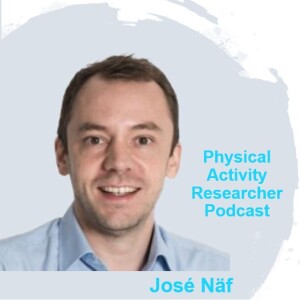
Wednesday Feb 04, 2026
/Highlights/ Cool Science: How Cooling Vests Work & When to Use Them – José Näf (Pt1)
Wednesday Feb 04, 2026
Wednesday Feb 04, 2026
What are the real differences between evaporative, phase-changing, electronic, and ice-based cooling vests? Why are athletes, firefighters, and even lab workers turning to these technologies?
"Lean more about Nahtlos Duratrode electrodes at https://www.nahtlos.com/"
In this episode, Dr. Olli Tikkanen speaks with José Näf, co-founder of Duracool, to break down the science and real-life applications behind different cooling vest technologies. As global temperatures rise and performance demands increase, understanding these cooling systems becomes crucial in both sports and professional settings.
José explains the four main cooling vest technologies: evaporative, phase-changing materials, electronic cooling with fans, and traditional ice-based solutions. He highlights where each method fits best—from professional sports to protective lab gear—and discusses why evaporative cooling mimics the natural human sweating process, especially useful for those who cannot sweat. They also explore the scientific controversy around the post-exercise use of ice baths, and the true nature of "phase change" in cooling materials.
This is a quick but informative episode for researchers, athletes, and professionals interested in how technology helps regulate body temperature under extreme conditions.
____________
This podcast episode is sponsored by Fibion Inc. | Better Sleep, Sedentary Behaviour and Physical Activity Research with Less Hassle
---
Collect, store and manage SB and PA data easily and remotely -
Discover ground-breaking Fibion SENS
---
SB and PA measurements, analysis, and feedback made easy.
Learn more about Fibion Research
---
Learn more about Fibion Sleep and Fibion Circadian Rhythm Solutions.
---
Fibion Kids - Activity tracking designed for children.
---
Collect self-report physical activity data easily and cost-effectively with Mimove.
---
Explore our Wearables, Experience sampling method (ESM), Sleep, Heart rate variability (HRV), Sedentary Behavior and Physical Activity article collections for insights on related articles.
---
Refer to our article "Physical Activity and Sedentary Behavior Measurements" for an exploration of active and sedentary lifestyle assessment methods.
---
Learn about actigraphy in our guide: Exploring Actigraphy in Scientific Research: A Comprehensive Guide.
---
Gain foundational ESM insights with "Introduction to Experience Sampling Method (ESM)" for a comprehensive overview.
---
Explore accelerometer use in health research with our article "Measuring Physical Activity and Sedentary Behavior with Accelerometers ".
---
For an introduction to the fundamental aspects of HRV, consider revisiting our Ultimate Guide to Heart Rate Variability.
---
Follow the podcast on Twitter https://twitter.com/PA_Researcher
Follow host Dr Olli Tikkanen on Twitter https://twitter.com/ollitikkanen
Follow Fibion on Twitter https://twitter.com/fibion
https://www.youtube.com/@PA_Researcher

Saturday Jan 31, 2026
Saturday Jan 31, 2026
This is the second part of our conversation with Dr Darryn Stamp where we explore complexities of athlete transitions within professional football. The conversation moves to exploring embodiment and relationship with sport post-retirement. Why is it that some elite and professional athletes have little interest in sport and exercise after their retirement?
Dr. Darryn Stamp played professional football before transitioning his second career as an academic. He wrote his PhD thesis at the University of Hull with a focus on the contextual complexities of transitions through and out of professional football.
Darryn is currently the Deputy Head of School for Health, Education and Sport at University Campus North Lincolnshire.
You can find out more about Darryn's research here:
More than just a 'Pro': a relational analysis of transition in professional football
'It's not all about me': negotiating the transition out of (semi-) professional football from an autoethnographic perspective

Tuesday Jan 27, 2026
Tuesday Jan 27, 2026
Today’s episode continues explorations of the complexities of athlete transitions within professional football. Career transitions often present a challenge to an athlete's identity and change their position in their relational networks. While career transitions have been an established topic in sport psychology, they are still underexplored from a sociological perspective, which informs our conversation today.
Today's guest Dr. Darryn Stamp played professional football before transitioning his second career as an academic. He wrote his PhD thesis at the University of Hull with a focus on the contextual complexities of transitions through and out of professional football.
Darryn is currently the Deputy Head of School for Health, Education and Sport at University Campus North Lincolnshire.
You can find out more about Darryn's research here:
More than just a 'Pro': a relational analysis of transition in professional football
'It's not all about me': negotiating the transition out of (semi-) professional football from an autoethnographic perspective
Timestamps:
[00:00:00] Introduction and Overview of Episode Theme
[00:02:00] Darryn's Transition from Football to Academia
[00:08:00] The Role of Education and Sociological Perspectives in Athlete Transitions
[00:14:00] Exploring Family Influences and Identity in Flux
[00:20:00] Mental Health and Well-Being in Athlete Transitions
[00:26:00] Team Dynamics and Support Systems in Professional Football
[00:32:00] Closing Thoughts
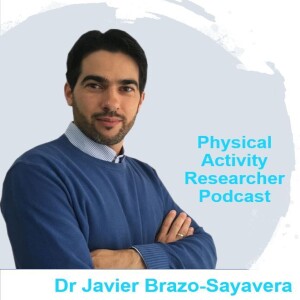
Friday Jan 23, 2026
Friday Jan 23, 2026
In the second part of this intriguing episode of the Physical Activity Researcher Podcast, Dr. Olli Tikkanen continues his conversation with Dr. Javier Brazo-Sayavera, focusing on the nuts and bolts of the Global Matrix initiative and how it's evolving with its 5.0 registration process.
Dr. Brazo-Sayavera shares practical insights for countries interested in joining the initiative, including the formation of expert groups and the logistical challenges of creating a national report card on physical activity.
The discussion shines a light on how the Global Matrix not only benchmarks physical activity levels across countries but also fosters collaboration between academia and government to drive policy and societal changes benefiting children's health. They delve into the process of assembling an expert group, emphasizing the need for diverse expertise to cover the broad spectrum of physical activity indicators, from organized sports to active transportation.
Dr. Brazo-Sayavera reflects on his experiences with the initiative, highlighting how it has built research capacity in countries like Uruguay and facilitated the development of surveillance systems and public health policies.
This part of the episode offers a behind-the-scenes look at the collaborative effort required to address physical inactivity at a global scale, providing a roadmap for new countries to contribute to this vital research endeavor.
Listeners will come away with a deeper understanding of the Global Matrix initiative's role in promoting active lifestyles among children and adolescents worldwide and the ongoing work to expand its reach and impact. This episode is a must-listen for anyone interested in the intersection of research, public policy, and the global effort to improve physical activity levels among the younger population.
_________________________________________________________
This podcast episode is sponsored by Fibion Inc. | Better Sleep, Sedentary Behaviour and Physical Activity Research with Less Hassle
---
Collect, store and manage SB and PA data easily and remotely -
Discover ground-breaking Fibion SENS
---
SB and PA measurements, analysis, and feedback made easy.
Learn more about Fibion Research
---
Learn more about Fibion Sleep and Fibion Circadian Rhythm Solutions.
---
Fibion Kids - Activity tracking designed for children.
---
Collect self-report physical activity data easily and cost-effectively with Mimove.
---
Explore our Wearables, Experience sampling method (ESM), Sleep, Heart rate variability (HRV), Sedentary Behavior and Physical Activity article collections for insights on related articles.
---
Refer to our article "Physical Activity and Sedentary Behavior Measurements" for an exploration of active and sedentary lifestyle assessment methods.
---
Learn about actigraphy in our guide: Exploring Actigraphy in Scientific Research: A Comprehensive Guide.
---
Gain foundational ESM insights with "Introduction to Experience Sampling Method (ESM)" for a comprehensive overview.
---
Explore accelerometer use in health research with our article "Measuring Physical Activity and Sedentary Behavior with Accelerometers ".
---
For an introduction to the fundamental aspects of HRV, consider revisiting our Ultimate Guide to Heart Rate Variability.
---
Follow the podcast on Twitter https://twitter.com/PA_Researcher
Follow host Dr Olli Tikkanen on Twitter https://twitter.com/ollitikkanen
Follow Fibion on Twitter https://twitter.com/fibion
https://www.youtube.com/@PA_Researcher
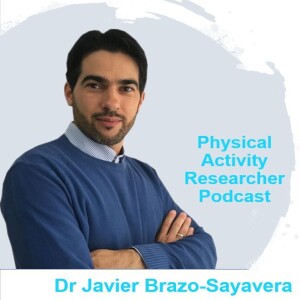
Monday Jan 19, 2026
Monday Jan 19, 2026
In this engaging episode of the Physical Activity Researcher Podcast, Dr. Olli Tikkanen sits down for a chat with Dr. Javier Brazo-Sayavera, who hails from the University of Pablo de Olavide in Spain, to discuss about the Global Matrix initiative.
This significant effort focuses on monitoring the physical activity levels of children from various countries, with the overarching aim of enhancing the health of young individuals worldwide.
Dr. Brazo-Sayavera shares his journey from his academic beginnings in Spain to his impactful work in Uruguay, and then back to Spain, all while keeping his sights set on improving children's health through a better understanding of physical activity. The discussion highlights how the Global Matrix initiative compares activity levels internationally and identifies successful strategies for motivating children to be more active.
Digging into the specifics of the initiative, they discuss how it evaluates countries based on the physical activity levels of their children and looks at the roles that schools and governments play in promoting healthier lifestyles.
The conversation also touches on the challenges of gathering accurate and meaningful data in this area. Offering a blend of scientific insights and practical advice, this episode is filled with valuable information for anyone interested in public health, education, and the well-being of our younger generations.
_________________________________________
This podcast episode is sponsored by Fibion Inc. | Better Sleep, Sedentary Behaviour and Physical Activity Research with Less Hassle
---
Collect, store and manage SB and PA data easily and remotely -
Discover ground-breaking Fibion SENS
---
SB and PA measurements, analysis, and feedback made easy.
Learn more about Fibion Research
---
Learn more about Fibion Sleep and Fibion Circadian Rhythm Solutions.
---
Fibion Kids - Activity tracking designed for children.
---
Collect self-report physical activity data easily and cost-effectively with Mimove.
---
Explore our Wearables, Experience sampling method (ESM), Sleep, Heart rate variability (HRV), Sedentary Behavior and Physical Activity article collections for insights on related articles.
---
Refer to our article "Physical Activity and Sedentary Behavior Measurements" for an exploration of active and sedentary lifestyle assessment methods.
---
Learn about actigraphy in our guide: Exploring Actigraphy in Scientific Research: A Comprehensive Guide.
---
Gain foundational ESM insights with "Introduction to Experience Sampling Method (ESM)" for a comprehensive overview.
---
Explore accelerometer use in health research with our article "Measuring Physical Activity and Sedentary Behavior with Accelerometers ".
---
For an introduction to the fundamental aspects of HRV, consider revisiting our Ultimate Guide to Heart Rate Variability.
---
Follow the podcast on Twitter https://twitter.com/PA_Researcher
Follow host Dr Olli Tikkanen on Twitter https://twitter.com/ollitikkanen
Follow Fibion on Twitter https://twitter.com/fibion
https://www.youtube.com/@PA_Researcher
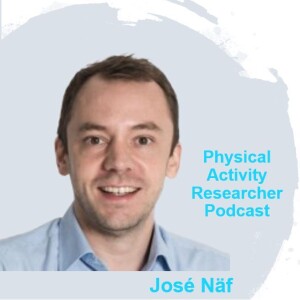
Thursday Jan 15, 2026
Thursday Jan 15, 2026
Can electrode design support both signal stability and sustainability?José Näf explains how Nahtlos electrodes reduce waste and skin irritation while delivering high-quality data over time.
In this fourth episode, Dr. Olli Tikkanen and José Näf explore the technical and environmental details of electrode design for long-term HRV and ECG measurements. José discusses how offset connectors, biocompatible foil materials, and breathable adhesives improve comfort and data quality. He also explains the sustainability advantages of Nahtlos’ packaging and activation system, which extends product shelf life and cuts down on disposable waste.
The conversation expands into practical tips on cable management, adhesive reactions, and how to reduce motion artifacts during physical activity. They also touch on emerging opportunities in long-term EMG monitoring and multi-sensor wearable setups. This episode gives practical guidance for researchers, developers, and clinicians aiming for long-duration, high-quality physiological data.
__________
This podcast episode is sponsored by Fibion Inc. | Better Sleep, Sedentary Behaviour and Physical Activity Research with Less Hassle
---
Collect, store and manage SB and PA data easily and remotely -
Discover ground-breaking Fibion SENS
---
SB and PA measurements, analysis, and feedback made easy.
Learn more about Fibion Research
---
Learn more about Fibion Sleep and Fibion Circadian Rhythm Solutions.
---
Fibion Kids - Activity tracking designed for children.
---
Collect self-report physical activity data easily and cost-effectively with Mimove.
---
Explore our Wearables, Experience sampling method (ESM), Sleep, Heart rate variability (HRV), Sedentary Behavior and Physical Activity article collections for insights on related articles.
---
Refer to our article "Physical Activity and Sedentary Behavior Measurements" for an exploration of active and sedentary lifestyle assessment methods.
---
Learn about actigraphy in our guide: Exploring Actigraphy in Scientific Research: A Comprehensive Guide.
---
Gain foundational ESM insights with "Introduction to Experience Sampling Method (ESM)" for a comprehensive overview.
---
Explore accelerometer use in health research with our article "Measuring Physical Activity and Sedentary Behavior with Accelerometers ".
---
For an introduction to the fundamental aspects of HRV, consider revisiting our Ultimate Guide to Heart Rate Variability.
---
Follow the podcast on Twitter https://twitter.com/PA_Researcher
Follow host Dr Olli Tikkanen on Twitter https://twitter.com/ollitikkanen
Follow Fibion on Twitter https://twitter.com/fibion
https://www.youtube.com/@PA_Researcher
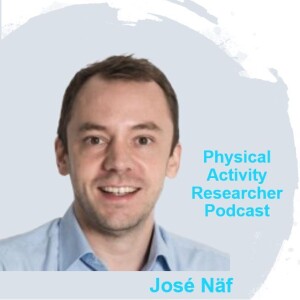
Sunday Jan 11, 2026
Sunday Jan 11, 2026
Can electrode systems self-regulate moisture to keep data quality high for 10 days?José Näf explains how Nahtlos’ innovative design improves both signal stability and skin comfort in long-term ECG and HRV tracking.
In this third episode, Dr. Olli Tikkanen continues the deep dive with José Näf into how advanced electrode technology is addressing the long-standing issues in long-term heart rate variability and ECG measurement. José introduces Nahtlos' breakthrough: a hybrid electrode with a water reservoir and a semi-permeable membrane that mimics natural sweating, maintaining low impedance and high-quality signals for up to 10 days.
They also explore how breathable adhesives, biocompatible conductive textiles, and precise material selection reduce skin irritation and improve patient comfort. José shares the testing process, from self-experimentation to hospital trials, and how their team developed their own standards for evaluating signal quality. This episode gives a rare behind-the-scenes look at how wearable ECG technology evolves from lab innovation to clinical use.
__________
This podcast episode is sponsored by Fibion Inc. | Better Sleep, Sedentary Behaviour and Physical Activity Research with Less Hassle
---
Collect, store and manage SB and PA data easily and remotely -
Discover ground-breaking Fibion SENS
---
SB and PA measurements, analysis, and feedback made easy.
Learn more about Fibion Research
---
Learn more about Fibion Sleep and Fibion Circadian Rhythm Solutions.
---
Fibion Kids - Activity tracking designed for children.
---
Collect self-report physical activity data easily and cost-effectively with Mimove.
---
Explore our Wearables, Experience sampling method (ESM), Sleep, Heart rate variability (HRV), Sedentary Behavior and Physical Activity article collections for insights on related articles.
---
Refer to our article "Physical Activity and Sedentary Behavior Measurements" for an exploration of active and sedentary lifestyle assessment methods.
---
Learn about actigraphy in our guide: Exploring Actigraphy in Scientific Research: A Comprehensive Guide.
---
Gain foundational ESM insights with "Introduction to Experience Sampling Method (ESM)" for a comprehensive overview.
---
Explore accelerometer use in health research with our article "Measuring Physical Activity and Sedentary Behavior with Accelerometers ".
---
For an introduction to the fundamental aspects of HRV, consider revisiting our Ultimate Guide to Heart Rate Variability.
---
Follow the podcast on Twitter https://twitter.com/PA_Researcher
Follow host Dr Olli Tikkanen on Twitter https://twitter.com/ollitikkanen
Follow Fibion on Twitter https://twitter.com/fibion
https://www.youtube.com/@PA_Researcher
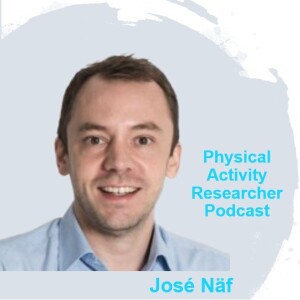
Wednesday Jan 07, 2026
Wednesday Jan 07, 2026
Does clothing material affect ECG signal quality?José Näf explains how electrostatic effects, electrode placement, and connector design influence long-term HRV and ECG data accuracy.
In this second episode, Dr. Olli Tikkanen continues his discussion with José Näf, co-founder of Nahtlos, diving deeper into the practical challenges of long-term ECG and HRV monitoring. José shares critical insights on how connector types, electrode placement, and impedance changes over time affect signal quality.
From the role of electrostatic interference caused by clothing materials to the importance of correct electrode positioning along the heart’s axis, this episode is packed with knowledge for researchers and clinicians. The conversation also highlights how to avoid common mistakes in multi-day measurements, especially when working with older patients or when user instructions aren't clear. Whether you're building wearables or planning long-term studies, this talk will help you get more reliable data.
__________
This podcast episode is sponsored by Fibion Inc. | Better Sleep, Sedentary Behaviour and Physical Activity Research with Less Hassle
---
Collect, store and manage SB and PA data easily and remotely -
Discover ground-breaking Fibion SENS
---
SB and PA measurements, analysis, and feedback made easy.
Learn more about Fibion Research
---
Learn more about Fibion Sleep and Fibion Circadian Rhythm Solutions.
---
Fibion Kids - Activity tracking designed for children.
---
Collect self-report physical activity data easily and cost-effectively with Mimove.
---
Explore our Wearables, Experience sampling method (ESM), Sleep, Heart rate variability (HRV), Sedentary Behavior and Physical Activity article collections for insights on related articles.
---
Refer to our article "Physical Activity and Sedentary Behavior Measurements" for an exploration of active and sedentary lifestyle assessment methods.
---
Learn about actigraphy in our guide: Exploring Actigraphy in Scientific Research: A Comprehensive Guide.
---
Gain foundational ESM insights with "Introduction to Experience Sampling Method (ESM)" for a comprehensive overview.
---
Explore accelerometer use in health research with our article "Measuring Physical Activity and Sedentary Behavior with Accelerometers ".
---
For an introduction to the fundamental aspects of HRV, consider revisiting our Ultimate Guide to Heart Rate Variability.
---
Follow the podcast on Twitter https://twitter.com/PA_Researcher
Follow host Dr Olli Tikkanen on Twitter https://twitter.com/ollitikkanen
Follow Fibion on Twitter https://twitter.com/fibion
https://www.youtube.com/@PA_Researcher
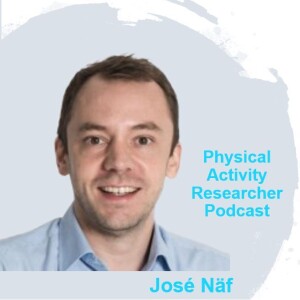
Saturday Jan 03, 2026
Saturday Jan 03, 2026
Dry electrodes often promise convenience, but why do they so often fail in long-term heart monitoring?José Näf breaks down the science and business behind electrode design for ECG and HRV tracking.
In this episode, Dr. Olli Tikkanen is joined by José Näf, founder of Nahtlos, to explore the challenges and innovations in electrode design for long-term ECG and heart rate variability monitoring. José shares his entrepreneurial journey from computer vision startups to building advanced medical wearables in collaboration with EMPA, a Swiss materials research institute.
José details the strengths and weaknesses of wet gel, solid gel, and dry electrodes, and introduces a hybrid electrode technology designed for long-term use without sacrificing comfort or signal quality. From material compatibility to managing skin reactions and motion artifacts, this episode offers practical insight into real-world problems researchers and developers face in health tech.
____________
This podcast episode is sponsored by Fibion Inc. | Better Sleep, Sedentary Behaviour and Physical Activity Research with Less Hassle
---
Collect, store and manage SB and PA data easily and remotely -
Discover ground-breaking Fibion SENS
---
SB and PA measurements, analysis, and feedback made easy.
Learn more about Fibion Research
---
Learn more about Fibion Sleep and Fibion Circadian Rhythm Solutions.
---
Fibion Kids - Activity tracking designed for children.
---
Collect self-report physical activity data easily and cost-effectively with Mimove.
---
Explore our Wearables, Experience sampling method (ESM), Sleep, Heart rate variability (HRV), Sedentary Behavior and Physical Activity article collections for insights on related articles.
---
Refer to our article "Physical Activity and Sedentary Behavior Measurements" for an exploration of active and sedentary lifestyle assessment methods.
---
Learn about actigraphy in our guide: Exploring Actigraphy in Scientific Research: A Comprehensive Guide.
---
Gain foundational ESM insights with "Introduction to Experience Sampling Method (ESM)" for a comprehensive overview.
---
Explore accelerometer use in health research with our article "Measuring Physical Activity and Sedentary Behavior with Accelerometers ".
---
For an introduction to the fundamental aspects of HRV, consider revisiting our Ultimate Guide to Heart Rate Variability.
---
Follow the podcast on Twitter https://twitter.com/PA_Researcher
Follow host Dr Olli Tikkanen on Twitter https://twitter.com/ollitikkanen
Follow Fibion on Twitter https://twitter.com/fibion
https://www.youtube.com/@PA_Researcher
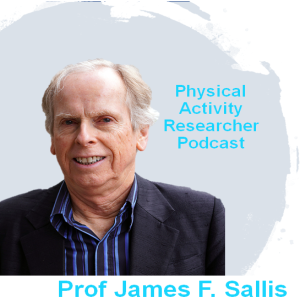
Sunday Dec 28, 2025
Sunday Dec 28, 2025
In this enlightening episode of our podcast, Dr. Olli Tikkanen engages in a thought-provoking conversation with Professor James F. Sallis, a newly appointed Distinguished Professor in the Department of Family Medicine and Public Health at the University of California, San Diego.
Professor Sallis, renowned for his extensive research on promoting physical activity and understanding its environmental influences, delves deep into the psychological aspects of sedentary behavior.
He emphasizes the importance of understanding the psychosocial variables derived from theories like the social cognitive theory and the transtheoretical model. The discussion further explores the role of technology, particularly wearables, in shaping the future of behavioral nutrition and physical activity research.
Professor Sallis candidly shares his concerns about the lack of standardization in data collection and interpretation. Towards the end, he passionately advocates for physical activity researchers to become more vocal in their demands for change, emphasizing the role of physical activity in combating climate change. This episode is not just an academic discourse but a call to action for all listeners.
____________________________________
This podcast episode is sponsored by Fibion Inc. | Better Sleep, Sedentary Behaviour and Physical Activity Research with Less Hassle
---
Collect, store and manage SB and PA data easily and remotely -
Discover ground-breaking Fibion SENS
---
SB and PA measurements, analysis, and feedback made easy.
Learn more about Fibion Research
---
Learn more about Fibion Sleep and Fibion Circadian Rhythm Solutions.
---
Fibion Kids - Activity tracking designed for children.
---
Collect self-report physical activity data easily and cost-effectively with Mimove.
---
Explore our Wearables, Experience sampling method (ESM), Sleep, Heart rate variability (HRV), Sedentary Behavior and Physical Activity article collections for insights on related articles.
---
Refer to our article "Physical Activity and Sedentary Behavior Measurements" for an exploration of active and sedentary lifestyle assessment methods.
---
Learn about actigraphy in our guide: Exploring Actigraphy in Scientific Research: A Comprehensive Guide.
---
Gain foundational ESM insights with "Introduction to Experience Sampling Method (ESM)" for a comprehensive overview.
---
Explore accelerometer use in health research with our article "Measuring Physical Activity and Sedentary Behavior with Accelerometers ".
---
For an introduction to the fundamental aspects of HRV, consider revisiting our Ultimate Guide to Heart Rate Variability.
---
Follow the podcast on Twitter https://twitter.com/PA_Researcher
Follow host Dr Olli Tikkanen on Twitter https://twitter.com/ollitikkanen
Follow Fibion on Twitter https://twitter.com/fibion
https://www.youtube.com/@PA_Researcher
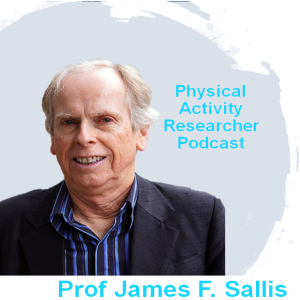
Friday Dec 26, 2025
Friday Dec 26, 2025
In this enlightening episode of our podcast, Dr. Olli Tikkanen engages in a deep dive with the renowned Professor James F. Sallis, the newly appointed Distinguished Professor in the Department of Family Medicine and Public Health at the University of California, San Diego.
Professor Sallis, also the Director of Active Living Research and an "obesity warrior" as dubbed by Time Magazine, brings to the table over 40 years of experience in the field of physical activity and behavioral medicine.
The discussion kicks off with an exploration into the evolution of physical activity recommendations and the challenges faced in the past four decades. Professor Sallis shares invaluable insights into the meticulous process of developing reliable measures, from questionnaires to accelerometers guidelines, emphasizing the importance of accurate measurement in advancing scientific research.
As the conversation progresses, listeners are treated to a historical perspective on the development of these measures and the significance of adapting them to the ever-evolving world of technology and sedentary behavior.
Whether you're a researcher, a student, or simply someone interested in the intricacies of physical activity and its measurement, this episode promises a wealth of knowledge.
_________________________________
This podcast episode is sponsored by Fibion Inc. | Better Sleep, Sedentary Behaviour and Physical Activity Research with Less Hassle
---
Collect, store and manage SB and PA data easily and remotely -
Discover ground-breaking Fibion SENS
---
SB and PA measurements, analysis, and feedback made easy.
Learn more about Fibion Research
---
Learn more about Fibion Sleep and Fibion Circadian Rhythm Solutions.
---
Fibion Kids - Activity tracking designed for children.
---
Collect self-report physical activity data easily and cost-effectively with Mimove.
---
Explore our Wearables, Experience sampling method (ESM), Sleep, Heart rate variability (HRV), Sedentary Behavior and Physical Activity article collections for insights on related articles.
---
Refer to our article "Physical Activity and Sedentary Behavior Measurements" for an exploration of active and sedentary lifestyle assessment methods.
---
Learn about actigraphy in our guide: Exploring Actigraphy in Scientific Research: A Comprehensive Guide.
---
Gain foundational ESM insights with "Introduction to Experience Sampling Method (ESM)" for a comprehensive overview.
---
Explore accelerometer use in health research with our article "Measuring Physical Activity and Sedentary Behavior with Accelerometers ".
---
For an introduction to the fundamental aspects of HRV, consider revisiting our Ultimate Guide to Heart Rate Variability.
---
Follow the podcast on Twitter https://twitter.com/PA_Researcher
Follow host Dr Olli Tikkanen on Twitter https://twitter.com/ollitikkanen
Follow Fibion on Twitter https://twitter.com/fibion
https://www.youtube.com/@PA_Researcher
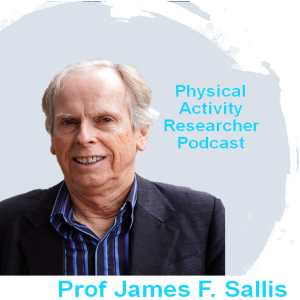
Wednesday Dec 24, 2025
Wednesday Dec 24, 2025
In this enlightening episode of Dr. Olli Tikkanen's podcast, we are joined by the esteemed Professor James F. Sallis, a newly appointed Distinguished Professor in the Department of Family Medicine and Public Health at the University of California, San Diego.
Recognized as an "obesity warrior" by Time Magazine and with over 500 scientific publications to his name, Professor Sallis delves deep into the intricate world of physical activity, its implications on public health, and the challenges faced in its promotion.
The discussion sheds light on the subtle yet powerful influences of major industries on sedentary behavior and the complexities of securing dedicated funding for physical activity research.
As the conversation unfolds, listeners are offered a rare glimpse into the evolution of physical activity research, the importance of its implementation, and the pressing need for more research to address the existing challenges.
Join us as we navigate the intersections of physical activity, built environments, and public health with one of the world's leading experts in the field.
_________________________________
This podcast episode is sponsored by Fibion Inc. | Better Sleep, Sedentary Behaviour and Physical Activity Research with Less Hassle
---
Collect, store and manage SB and PA data easily and remotely -
Discover ground-breaking Fibion SENS
---
SB and PA measurements, analysis, and feedback made easy.
Learn more about Fibion Research
---
Learn more about Fibion Sleep and Fibion Circadian Rhythm Solutions.
---
Fibion Kids - Activity tracking designed for children.
---
Collect self-report physical activity data easily and cost-effectively with Mimove.
---
Explore our Wearables, Experience sampling method (ESM), Sleep, Heart rate variability (HRV), Sedentary Behavior and Physical Activity article collections for insights on related articles.
---
Refer to our article "Physical Activity and Sedentary Behavior Measurements" for an exploration of active and sedentary lifestyle assessment methods.
---
Learn about actigraphy in our guide: Exploring Actigraphy in Scientific Research: A Comprehensive Guide.
---
Gain foundational ESM insights with "Introduction to Experience Sampling Method (ESM)" for a comprehensive overview.
---
Explore accelerometer use in health research with our article "Measuring Physical Activity and Sedentary Behavior with Accelerometers ".
---
For an introduction to the fundamental aspects of HRV, consider revisiting our Ultimate Guide to Heart Rate Variability.
---
Follow the podcast on Twitter https://twitter.com/PA_Researcher
Follow host Dr Olli Tikkanen on Twitter https://twitter.com/ollitikkanen
Follow Fibion on Twitter https://twitter.com/fibion
https://www.youtube.com/@PA_Researcher
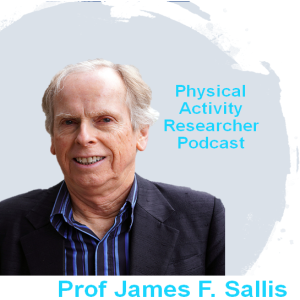
Monday Dec 22, 2025
Monday Dec 22, 2025
In the latest episode of the podcast hosted by Dr. Olli Tikkanen, listeners are treated to an insightful conversation with the distinguished Professor James F. Sallis. Professor Sallis, recently appointed to the Department of Family Medicine and Public Health at the University of California, San Diego, is a renowned figure in the realm of behavioral medicine and public health. With a rich career marked by his dedication to understanding the intersections of physical activity, built environments, and public health, Professor Sallis has been recognized globally for his pioneering research. Notably, he has been identified as one of the world's most cited authors in the social sciences and has received accolades such as the Lifetime Achievement Award from the President's Council on Fitness, Sports, and Nutrition.
In this episode, Dr. Tikkanen and Professor Sallis delve deep into the evolution of physical activity research over the years. They discuss the role of built environments, the significance of accurate measures, and share insights into the challenges and opportunities in the field. Professor Sallis recounts the transformative shifts he has witnessed in the domain of behavioral nutrition and physical activity. He emphasizes the myriad benefits of physical activity, from its role in bolstering the immune system to its anti-inflammatory impacts. However, he also highlights the challenges in translating research into policy and practice, lamenting the lack of dedicated infrastructure and funding for physical activity in public health.
The conversation also touches upon the broader implications of physical activity on public health, especially in the context of the COVID-19 pandemic. Professor Sallis underscores the importance of physical activity in combating infectious diseases and its potential role in mitigating severe outcomes in COVID-19 patients. The episode concludes with a discussion on the complexities of promoting physical activity, given the powerful industries that inadvertently promote sedentary lifestyles. From the oil companies to the electronics sector, these industries pose significant challenges to the mission of re-engineering physical activity back into our daily lives.
Tune in to this enlightening episode to gain a deeper understanding of the multifaceted world of physical activity research and its profound implications for public health.
_______________________________________________
This podcast episode is sponsored by Fibion Inc. | Better Sleep, Sedentary Behaviour and Physical Activity Research with Less Hassle
---
Collect, store and manage SB and PA data easily and remotely -
Discover ground-breaking Fibion SENS
---
SB and PA measurements, analysis, and feedback made easy.
Learn more about Fibion Research
---
Learn more about Fibion Sleep and Fibion Circadian Rhythm Solutions.
---
Fibion Kids - Activity tracking designed for children.
---
Collect self-report physical activity data easily and cost-effectively with Mimove.
---
Explore our Wearables, Experience sampling method (ESM), Sleep, Heart rate variability (HRV), Sedentary Behavior and Physical Activity article collections for insights on related articles.
---
Refer to our article "Physical Activity and Sedentary Behavior Measurements" for an exploration of active and sedentary lifestyle assessment methods.
---
Learn about actigraphy in our guide: Exploring Actigraphy in Scientific Research: A Comprehensive Guide.
---
Gain foundational ESM insights with "Introduction to Experience Sampling Method (ESM)" for a comprehensive overview.
---
Explore accelerometer use in health research with our article "Measuring Physical Activity and Sedentary Behavior with Accelerometers ".
---
For an introduction to the fundamental aspects of HRV, consider revisiting our Ultimate Guide to Heart Rate Variability.
---
Follow the podcast on Twitter https://twitter.com/PA_Researcher
Follow host Dr Olli Tikkanen on Twitter https://twitter.com/ollitikkanen
Follow Fibion on Twitter https://twitter.com/fibion
https://www.youtube.com/@PA_Researcher
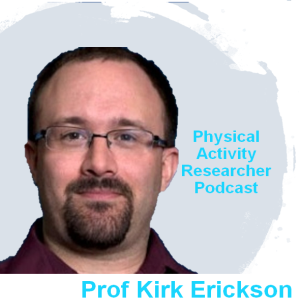
Saturday Dec 20, 2025
Saturday Dec 20, 2025
Dr. Kirk Erickson is Director of Translational Neuroscience and Mardian J. Blair Endowed Chair of Neuroscience at the AdventHealth Research Institute, Neuroscience Institute. Dr. Erickson received his Ph.D. at the University of Illinois at Urbana-Champaign and was a post-doctoral scholar at the Beckman Institute for Advanced Science and Engineering. He was also a Professor of Psychology and Neuroscience at the University of Pittsburgh before starting at AdventHealth. Dr. Erickson’s vast research program focuses on the effects of physical activity on brain health across the lifespan. This research has resulted in > 250 published articles and 15 book chapters.
Dr. Erickson’s research has been funded by numerous awards and grants from NIH, the Alzheimer’s Association, and other organizations. He has been awarded a large multi-site Phase III clinical trial examining the impact of exercise on cognitive function in cognitively normal older adults. His research resulted in the prestigious Chancellor’s Distinguished Research Award from the University of Pittsburgh. He was named a Fellow of the Academy of Behavioral Medicine Research in 2016, and a Distinguished Scientist Award by Murdoch University in 2018. He currently holds a Visiting Professor appointment at the University of Granada, Spain.
Dr. Erickson was a member of the 2018 Physical Activity Guidelines Advisory Committee, and chair of the Brain Health subcommittee charged with developing the second edition of the Physical Activity Guidelines for Americans. His research has been featured in a long list of print, radio, and electronic media including the New York Times, CNN, BBC News, NPR, Time, and the Wall Street Journal.
This podcast episode is sponsored by Fibion Inc. | Better Sleep, Sedentary Behaviour and Physical Activity Research with Less Hassle
---
Collect, store and manage SB and PA data easily and remotely -
Discover ground-breaking Fibion SENS
---
SB and PA measurements, analysis, and feedback made easy.
Learn more about Fibion Research
---
Learn more about Fibion Sleep and Fibion Circadian Rhythm Solutions.
---
Fibion Kids - Activity tracking designed for children.
---
Collect self-report physical activity data easily and cost-effectively with Mimove.
---
Explore our Wearables, Experience sampling method (ESM), Sleep, Heart rate variability (HRV), Sedentary Behavior and Physical Activity article collections for insights on related articles.
---
Refer to our article "Physical Activity and Sedentary Behavior Measurements" for an exploration of active and sedentary lifestyle assessment methods.
---
Learn about actigraphy in our guide: Exploring Actigraphy in Scientific Research: A Comprehensive Guide.
---
Gain foundational ESM insights with "Introduction to Experience Sampling Method (ESM)" for a comprehensive overview.
---
Explore accelerometer use in health research with our article "Measuring Physical Activity and Sedentary Behavior with Accelerometers ".
---
For an introduction to the fundamental aspects of HRV, consider revisiting our Ultimate Guide to Heart Rate Variability.
---
Follow the podcast on Twitter https://twitter.com/PA_Researcher
Follow host Dr Olli Tikkanen on Twitter https://twitter.com/ollitikkanen
Follow Fibion on Twitter https://twitter.com/fibion
https://www.youtube.com/@PA_Researcher
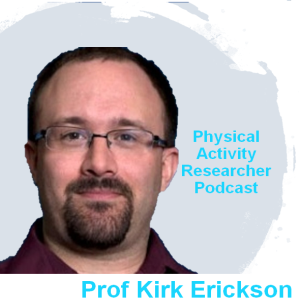
Thursday Dec 18, 2025
Thursday Dec 18, 2025
Dr. Kirk Erickson is Director of Translational Neuroscience and Mardian J. Blair Endowed Chair of Neuroscience at the AdventHealth Research Institute, Neuroscience Institute. Dr. Erickson received his Ph.D. at the University of Illinois at Urbana-Champaign and was a post-doctoral scholar at the Beckman Institute for Advanced Science and Engineering. He was also a Professor of Psychology and Neuroscience at the University of Pittsburgh before starting at AdventHealth. Dr. Erickson’s vast research program focuses on the effects of physical activity on brain health across the lifespan. This research has resulted in > 250 published articles and 15 book chapters.
Dr. Erickson’s research has been funded by numerous awards and grants from NIH, the Alzheimer’s Association, and other organizations. He has been awarded a large multi-site Phase III clinical trial examining the impact of exercise on cognitive function in cognitively normal older adults. His research resulted in the prestigious Chancellor’s Distinguished Research Award from the University of Pittsburgh. He was named a Fellow of the Academy of Behavioral Medicine Research in 2016, and a Distinguished Scientist Award by Murdoch University in 2018. He currently holds a Visiting Professor appointment at the University of Granada, Spain.
Dr. Erickson was a member of the 2018 Physical Activity Guidelines Advisory Committee, and chair of the Brain Health subcommittee charged with developing the second edition of the Physical Activity Guidelines for Americans. His research has been featured in a long list of print, radio, and electronic media including the New York Times, CNN, BBC News, NPR, Time, and the Wall Street Journal.
This podcast episode is sponsored by Fibion Inc. | Better Sleep, Sedentary Behaviour and Physical Activity Research with Less Hassle
---
Collect, store and manage SB and PA data easily and remotely -
Discover ground-breaking Fibion SENS
---
SB and PA measurements, analysis, and feedback made easy.
Learn more about Fibion Research
---
Learn more about Fibion Sleep and Fibion Circadian Rhythm Solutions.
---
Fibion Kids - Activity tracking designed for children.
---
Collect self-report physical activity data easily and cost-effectively with Mimove.
---
Explore our Wearables, Experience sampling method (ESM), Sleep, Heart rate variability (HRV), Sedentary Behavior and Physical Activity article collections for insights on related articles.
---
Refer to our article "Physical Activity and Sedentary Behavior Measurements" for an exploration of active and sedentary lifestyle assessment methods.
---
Learn about actigraphy in our guide: Exploring Actigraphy in Scientific Research: A Comprehensive Guide.
---
Gain foundational ESM insights with "Introduction to Experience Sampling Method (ESM)" for a comprehensive overview.
---
Explore accelerometer use in health research with our article "Measuring Physical Activity and Sedentary Behavior with Accelerometers ".
---
For an introduction to the fundamental aspects of HRV, consider revisiting our Ultimate Guide to Heart Rate Variability.
---
Follow the podcast on Twitter https://twitter.com/PA_Researcher
Follow host Dr Olli Tikkanen on Twitter https://twitter.com/ollitikkanen
Follow Fibion on Twitter https://twitter.com/fibion
https://www.youtube.com/@PA_Researcher
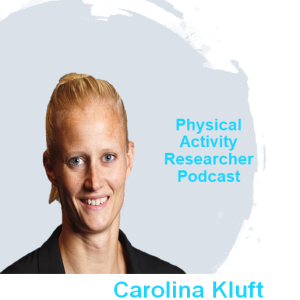
Tuesday Dec 16, 2025
Tuesday Dec 16, 2025
This podcast episode is sponsored by Fibion Inc. | Better Sleep, Sedentary Behaviour and Physical Activity Research with Less Hassle
---
Collect, store and manage SB and PA data easily and remotely -
Discover ground-breaking Fibion SENS
---
SB and PA measurements, analysis, and feedback made easy.
Learn more about Fibion Research
---
Learn more about Fibion Sleep and Fibion Circadian Rhythm Solutions.
---
Fibion Kids - Activity tracking designed for children.
---
Collect self-report physical activity data easily and cost-effectively with Mimove.
---
Explore our Wearables, Experience sampling method (ESM), Sleep, Heart rate variability (HRV), Sedentary Behavior and Physical Activity article collections for insights on related articles.
---
Refer to our article "Physical Activity and Sedentary Behavior Measurements" for an exploration of active and sedentary lifestyle assessment methods.
---
Learn about actigraphy in our guide: Exploring Actigraphy in Scientific Research: A Comprehensive Guide.
---
Gain foundational ESM insights with "Introduction to Experience Sampling Method (ESM)" for a comprehensive overview.
---
Explore accelerometer use in health research with our article "Measuring Physical Activity and Sedentary Behavior with Accelerometers ".
---
For an introduction to the fundamental aspects of HRV, consider revisiting our Ultimate Guide to Heart Rate Variability.
---
Follow the podcast on Twitter https://twitter.com/PA_Researcher
Follow host Dr Olli Tikkanen on Twitter https://twitter.com/ollitikkanen
Follow Fibion on Twitter https://twitter.com/fibion
https://www.youtube.com/@PA_Researcher
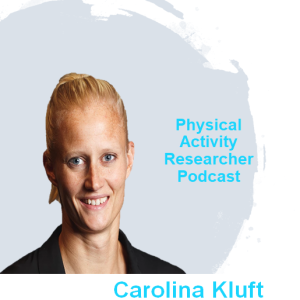
Sunday Dec 14, 2025
Sunday Dec 14, 2025
This podcast episode is sponsored by Fibion Inc. | Better Sleep, Sedentary Behaviour and Physical Activity Research with Less Hassle
---
Collect, store and manage SB and PA data easily and remotely -
Discover ground-breaking Fibion SENS
---
SB and PA measurements, analysis, and feedback made easy.
Learn more about Fibion Research
---
Learn more about Fibion Sleep and Fibion Circadian Rhythm Solutions.
---
Fibion Kids - Activity tracking designed for children.
---
Collect self-report physical activity data easily and cost-effectively with Mimove.
---
Explore our Wearables, Experience sampling method (ESM), Sleep, Heart rate variability (HRV), Sedentary Behavior and Physical Activity article collections for insights on related articles.
---
Refer to our article "Physical Activity and Sedentary Behavior Measurements" for an exploration of active and sedentary lifestyle assessment methods.
---
Learn about actigraphy in our guide: Exploring Actigraphy in Scientific Research: A Comprehensive Guide.
---
Gain foundational ESM insights with "Introduction to Experience Sampling Method (ESM)" for a comprehensive overview.
---
Explore accelerometer use in health research with our article "Measuring Physical Activity and Sedentary Behavior with Accelerometers ".
---
For an introduction to the fundamental aspects of HRV, consider revisiting our Ultimate Guide to Heart Rate Variability.
---
Follow the podcast on Twitter https://twitter.com/PA_Researcher
Follow host Dr Olli Tikkanen on Twitter https://twitter.com/ollitikkanen
Follow Fibion on Twitter https://twitter.com/fibion
https://www.youtube.com/@PA_Researcher
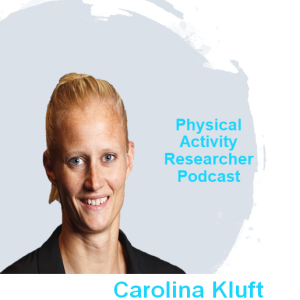
Friday Dec 12, 2025
Friday Dec 12, 2025
This podcast episode is sponsored by Fibion Inc. | Better Sleep, Sedentary Behaviour and Physical Activity Research with Less Hassle
---
Collect, store and manage SB and PA data easily and remotely -
Discover ground-breaking Fibion SENS
---
SB and PA measurements, analysis, and feedback made easy.
Learn more about Fibion Research
---
Learn more about Fibion Sleep and Fibion Circadian Rhythm Solutions.
---
Fibion Kids - Activity tracking designed for children.
---
Collect self-report physical activity data easily and cost-effectively with Mimove.
---
Explore our Wearables, Experience sampling method (ESM), Sleep, Heart rate variability (HRV), Sedentary Behavior and Physical Activity article collections for insights on related articles.
---
Refer to our article "Physical Activity and Sedentary Behavior Measurements" for an exploration of active and sedentary lifestyle assessment methods.
---
Learn about actigraphy in our guide: Exploring Actigraphy in Scientific Research: A Comprehensive Guide.
---
Gain foundational ESM insights with "Introduction to Experience Sampling Method (ESM)" for a comprehensive overview.
---
Explore accelerometer use in health research with our article "Measuring Physical Activity and Sedentary Behavior with Accelerometers ".
---
For an introduction to the fundamental aspects of HRV, consider revisiting our Ultimate Guide to Heart Rate Variability.
---
Follow the podcast on Twitter https://twitter.com/PA_Researcher
Follow host Dr Olli Tikkanen on Twitter https://twitter.com/ollitikkanen
Follow Fibion on Twitter https://twitter.com/fibion
https://www.youtube.com/@PA_Researcher
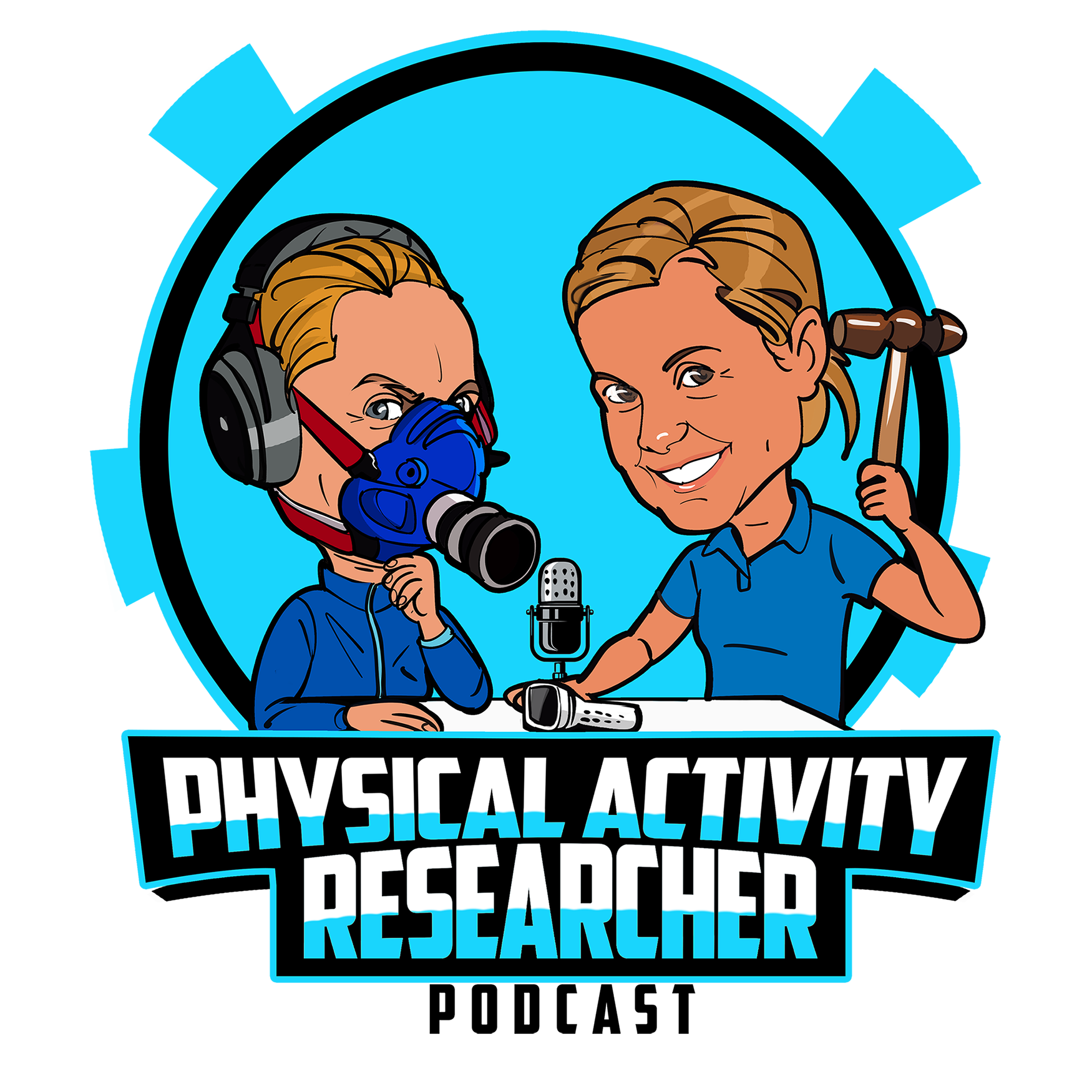
Hello and Welcome to Physical Activity Researcher Podcast!
Physical Activity Researcher Podcast is the source of the latest research findings on all things related to physical activity, exercise, and health. World-renowned scientists and experts as guests in an informal and relaxed interview style format. The podcast is for anyone who likes to learn scientific and evidence-based knowledge of physical activity, exercise, and health.
Physical Activity Researcher Series
The latest research findings in exercise physiology, physical education, coaching sciences, sport psychology, epidemiology, and public health.
Meaningful Sport Series
Meaningful Sport is dedicated to the exploration of meaning and meaningful experiences in sport and physical activity.
Practitioner’s Viewpoint Series
Practitioner’s Viewpoint Series has health and fitness professionals as guests. This series is for you if you are a Personal Trainer, Physiotherapist, Medical Doctor, Health Coach, or anyone working as a health and fitness professional.
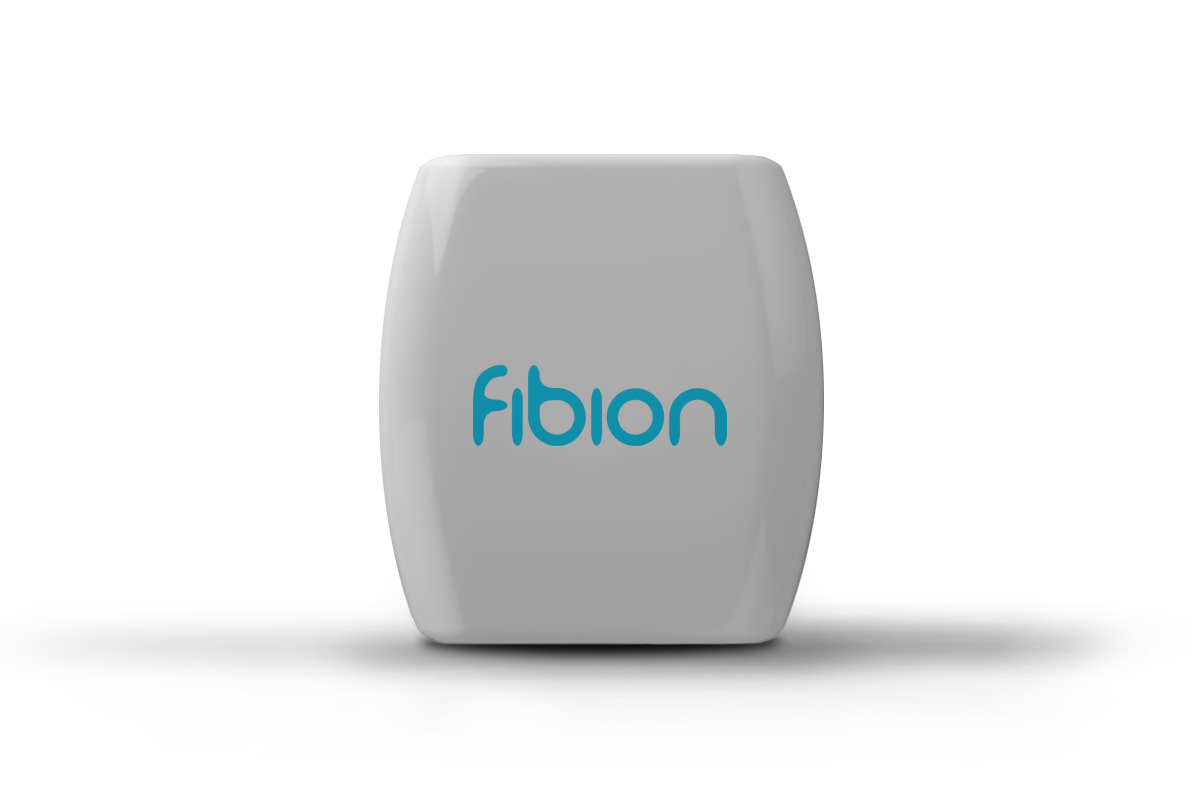
Podcast brought to you by
Fibion
Fibion is the new gold standard for sedentary behaviour and physical activity data collection for researchers. Cloud-based modern solutions make data collection easier than it has never been.
---
Fibion Pro is the first physical activity analysis product targeted from the beginning for health and fitness professionals. It is accurate and easy to use in connection with professional consultation meetings.
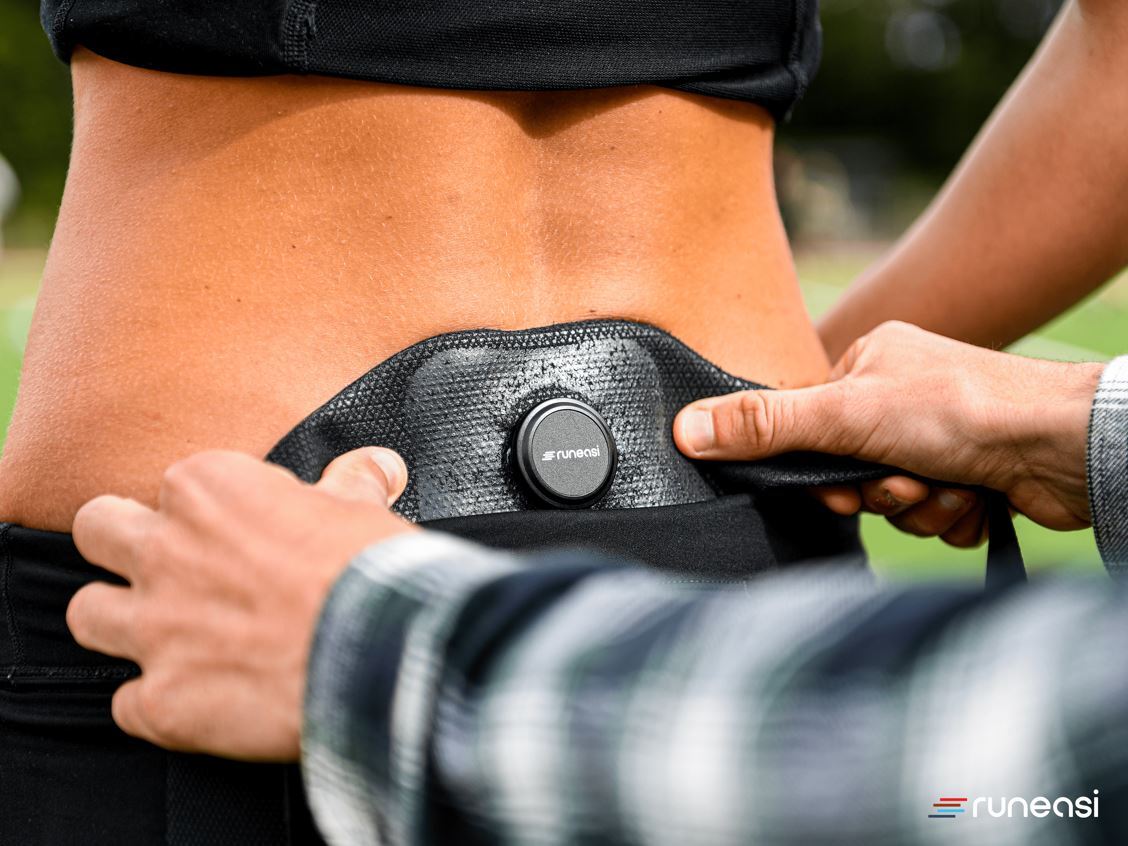
Practitioner's Viewpoint Series Brought to You by
Runeasi
Enabling value-based gait analysis for athletes with musculoskeletal conditions.
1. ASSESS
Runeasi’s real-time functionality gives you immediate and objective visual feedback about how well your patients are moving. Hence, you can immediately identify problem areas, weak links, or poor running technique.
2. ANALYZE
Test your verbal cues out on your patients as you guide them through rehabilitation and return to play/sport. Correct with confidence and surety in knowing what works for them.
3. ADDRESS
Help your patients emerge stronger than ever by giving personalized feedback on important technical parameters like impact asymmetry. Runeasi will help you improve your patients running technique and their ability to achieve your sporting goals!
Learn more: https://runeasi.ai
Book a free demo: https://calendly.com/runeasi/30min






